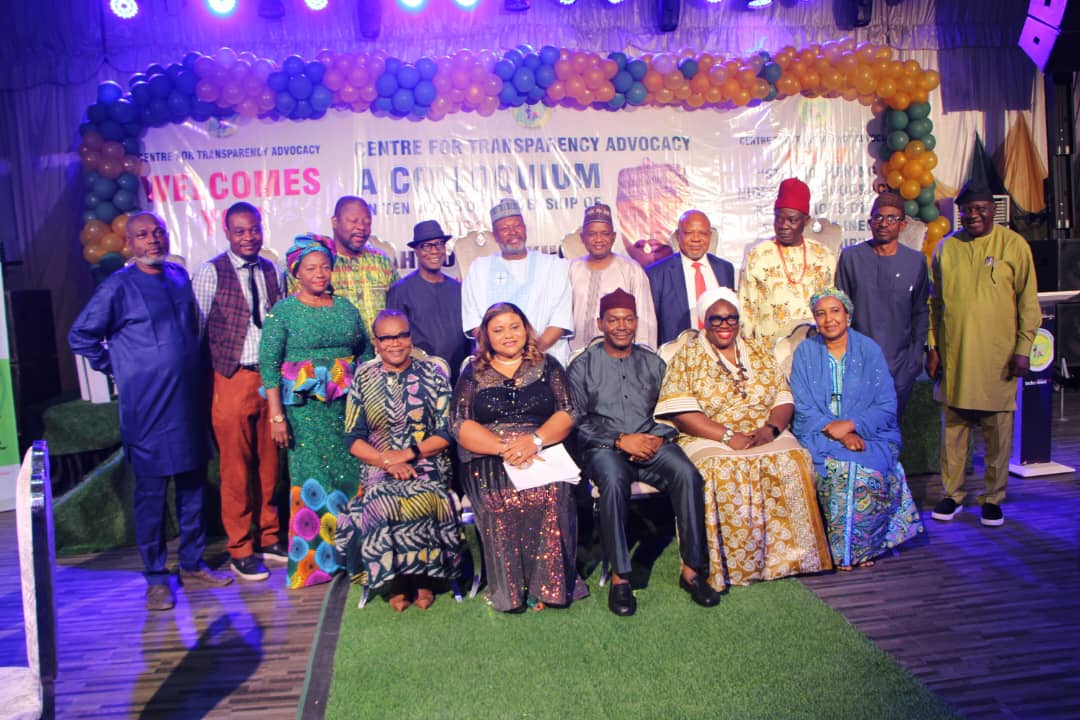Politics
Inter-Party Council Hails Immediate Past INEC Boss Yakubu Mahmood for Technological Revolution in Elections

The Inter Party Advisory Council (IPAC) has extended significant commendation to the immediate past Chairman of the Independent National Electoral Commission (INEC), Professor Yakubu Mahmood, for his pivotal role in reforming Nigeria’s electoral system, achieved primarily through the strategic and widespread introduction of technology. This recognition was the central theme of a recent colloquium held in Abuja to celebrate and assess the impact of Mahmood’s ten years leading the commission, where Alhaji Yusuf Dantalle, the National Chairman of IPAC, confirmed that the massive systematic changes implemented under Mahmood’s tenure made it virtually impossible for instances of multiple voting to occur during elections.
Dependable NG reports that Dantalle provided further detail on the positive consequences of these technological deployments, asserting that despite public concerns regarding voter apathy, the innovations ensured that votes cast by Nigerians in the general election were authentically recorded and accurately counted. He elaborated that these new systems served as a powerful check, severely curtailing the ability of political parties to manipulate the process through methods such as using fake voter cards, thereby guaranteeing that only legitimately registered voters participated in the polls. The IPAC chairman drew a contrast with the past, recalling an era where results were often manufactured and enormous vote tallies were announced. He noted that the technology championed by Professor Mahmood first systematically cleaned the voter register, successfully removing multiple registrations and addressing the historic issue of underage voters, ensuring that every individual was uniquely registered nationwide.
Furthermore, Dantalle cited the ineffectiveness of counterfeit Permanent Voter Cards (PVCs) against the Bimodal Voter Accreditation System (BVAS) as compelling evidence of the technology’s ability to secure the ballot. He emphasised that the election figures ultimately reflected the genuine will of the Nigerian people, free from political fabrication. The practical effect of this integrity was clearly demonstrated by unexpected political outcomes, including sitting governors losing their senatorial bids in states such as Enugu, Benue, and Kebbi. Additionally, the remarkable performance of a candidate like Peter Obi, who lacked a conventional grassroots political structure but still defeated the incumbent president in Lagos State, served to confirm that the will of the electorate was indeed the decisive factor. The Mahmood era also utilised technology to bring an end to the manipulation of candidate lists submitted by political parties after primary elections. Dantalle described the past chaotic scenario involving large shipments of primary election documents and the necessity of influencing officials to alter the names of genuine winners. Mahmood’s solution empowered political parties to use a system for uploading their candidates’ names, a process that was cross-referenced with the commission’s own primary election data. This mechanism ensures that any attempt to submit a name not corresponding to the actual primary winner is automatically rejected, a crucial safeguard that has resulted in a tremendous reduction in pre-election litigations. The IPAC Chairman took care to point out that these innovations were entirely homegrown, developed by INEC staff, and were only introduced following a consensus and input process involving major stakeholders.
The Keynote Speaker, Professor Emmanuel Aiyede of the University of Ibadan, delivered a lecture titled “INEC under Prof. Mahmood Yakubu,” where he offered critical but generally positive appraisal, characterising the former INEC chairman’s tenure as a “quiet but profound technological revolution” involving tools like the BVAS and the INEC Results Viewing Portal (IReV). Prof. Aiyede powerfully argued that Mahmood’s true legacy extends beyond the hardware itself, residing in the successful transformation of INEC’s institutional culture. This shift moved the perception of technology from a novelty to an essential piece of infrastructure that amplifies integrity and makes manipulation more traceable and, therefore, riskier. While applauding this progress, Professor Aiyede cautioned that technology is not enough on its own to ensure electoral credibility. He called for a focus on the post-Yakubu era that deepens and sustains this new institutional culture, suggesting that technology must evolve to support long-term democratic planning. He stressed that the commission must continue to professionalise its human capital, preparing a new generation of electoral managers fluent in both law and technology and committed to ethical leadership.
Concluding the event, Faith Nwadishi, the Executive Director of the Centre for Transparency Advocacy, joined the praise, commending Prof. Yakubu for successfully institutionalising continuous voter registration, expanding engagement with stakeholders, and implementing gender-sensitive policies such as establishing a creche at the INEC headquarters. However, Nwadishi emphasised that the collective commitment of all stakeholders must now pivot to address persistent challenges, specifically naming growing security threats that complicate elections, the scourge of vote buying and voter intimidation, and the pervasive threat of voter apathy. She asserted that technological innovation must be matched by equivalent political will and sustained institutional reform. The IPAC leadership ultimately issued a strong challenge to Professor Mahmood Yakubu’s successor: to build upon the formidable foundation he leaves behind, which has unquestionably strengthened the electoral institution.
